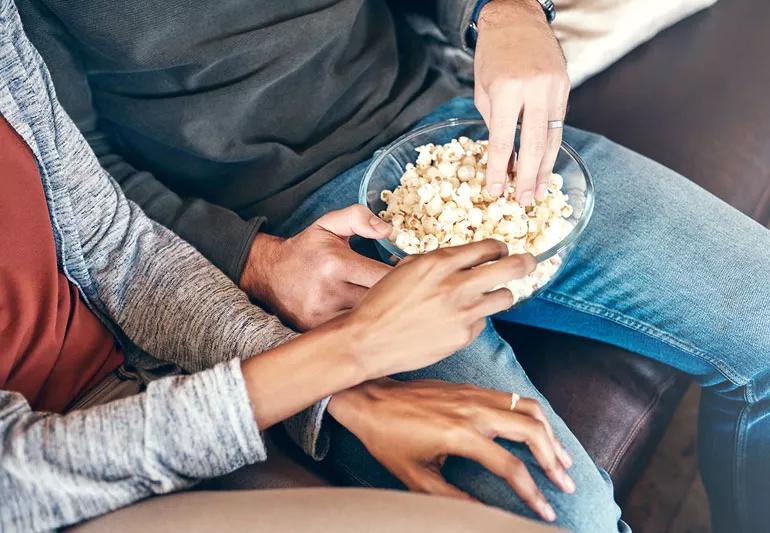Know the difference between diverticulosis, diverticulitis

There’s a lot of misinformation floating around about diverticular disease – namely diverticulosis and diverticulitis.
Advertisement
Cleveland Clinic is a non-profit academic medical center. Advertising on our site helps support our mission. We do not endorse non-Cleveland Clinic products or services. Policy
Patients believe they can’t eat nuts or seeds (one of the most common myths). or they’re simply confused about the difference between conditions. Below, colorectal surgeon Michael Valente, DO, dispels the most common myths.
Fact: This most persistent myth actually contradicts advice doctors give for preventing the condition in the first place. A healthy, high-fiber diet is actually the best medicine against diverticulitis, and seeds and nuts certainly fit the bill.
We used to think that a seed or nut plugged the pocket in the colon, and that’s what caused it to become inflamed or to rupture. But studies have strongly suggested there’s nothing to that idea — or that these foods should be avoided.
Fact: Patients often confuse the related conditions diverticulosis and diverticulitis.
Diverticulosis generally needs no treatment, while diverticulitis is a more serious condition that may require surgery.
Diverticulosis refers to small pockets that protrude through weak muscle layers in the intestinal wall, similar to a bubble in a tire. They’re fairly common — 60% of people have them by age 60. Up to 80% of people have them by age 80.
A colonoscopy usually brings this condition to light, and it’s something that’s just found by chance. Most people don’t even realize they have the pockets. And by themselves, they’re little cause for concern. Diverticulosis is like having freckles: It’s only a problem if those freckles turn into a mole. We only operate on rare cases where the diverticulosis bleeds and doesn’t stop bleeding.
Advertisement
Diverticulitis occurs when one or more of those pockets perforate (make a hole in the colon wall) and an infection occurs. Or when pockets rupture and bacteria that are normally in your stool get outside of the intestines and into the surrounding abdominal area.
When this happens, a variety of complications can arise:
Not everybody who has diverticulitis needs surgery, but they should see a physician (either in primary care or the emergency room) to get a proper diagnosis.
Fact: Diverticulitis happens in only 10 to 25% of those with diverticulosis. Also the great majority, or 75%, of those cases are the less serious type – requiring simple outpatient treatment, and perhaps antibiotic medication.
Research shows the next bout of diverticulitis is most often going to be similar to your first bout. Usually, if your body could handle diverticulitis the first time, then the next time, it’s going to react just as well.
Lots of patients ask, “How do I prevent myself from getting diverticulitis?” Unfortunately, we don’t know why people get it. We think it’s from high pressure in the bowels and being constipated. We suggest eating a high-fiber, healthy diet and avoiding constipation.
Advertisement
Learn more about our editorial process.
Advertisement

Most recommended precautions center around minimizing bruising or swelling

Even one drink can have an impact on your cognitive function leading to slurred speech, blurred vision and impaired memory

Understand who may (and may not) benefit

Lorem ipsum dolor sit amet. Et odio Quis vel ipsam omnis eum alias deleniti et placeat impedit non voluptas galisum hic autem enim et cupiditate aliquid. Est beatae quidem non facilis autem ut commodi nisi aut tempore rerum et dolores voluptatem cum enim optio id sapiente quasi. Ad laboriosam officiis 33 cupiditate sequi ea voluptatum consectetur qui necessitatibus voluptate et quasi doloremque et facere explicabo quo explicabo officia

Seeking help through therapy can be an important step in improving your quality of life when you have UC

Type 2 diabetes isn’t inevitable with these dietary changes

Applying a hot or cold compress can help with pain